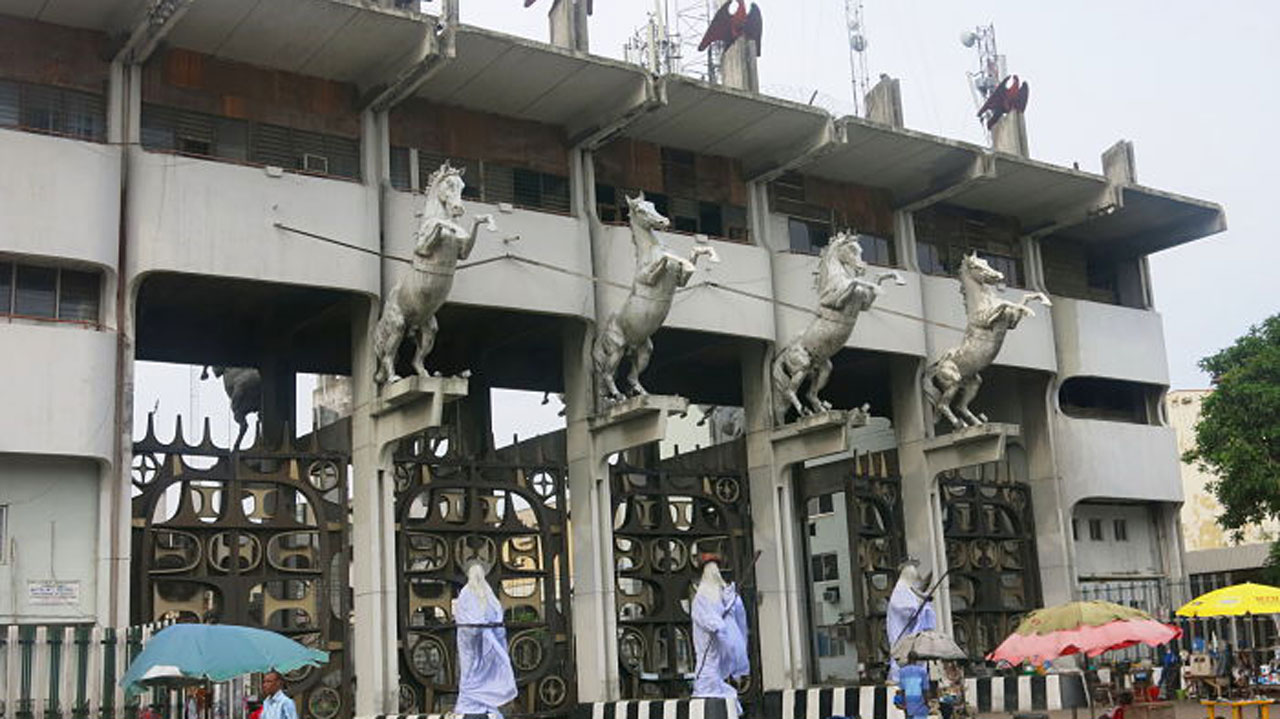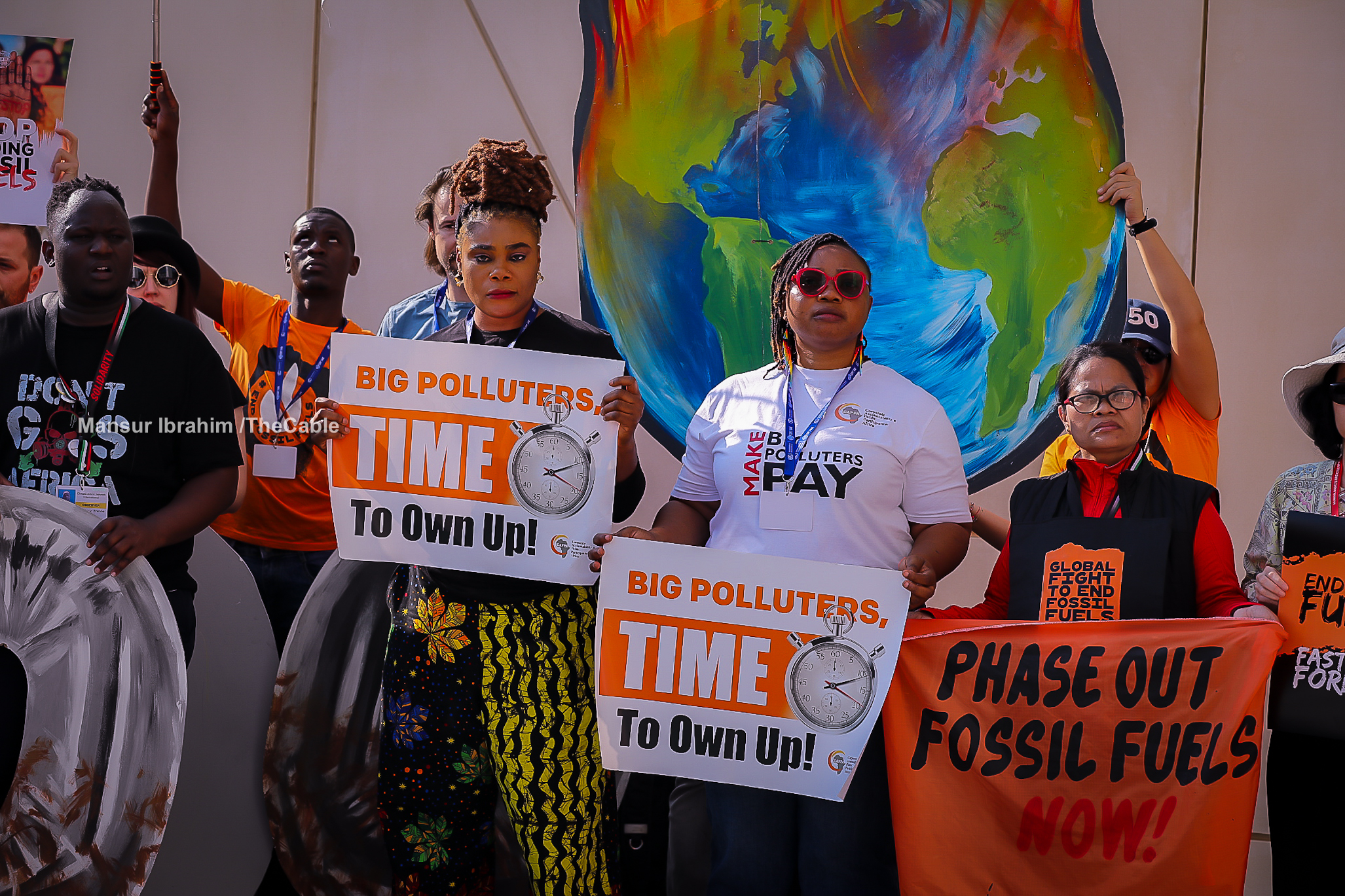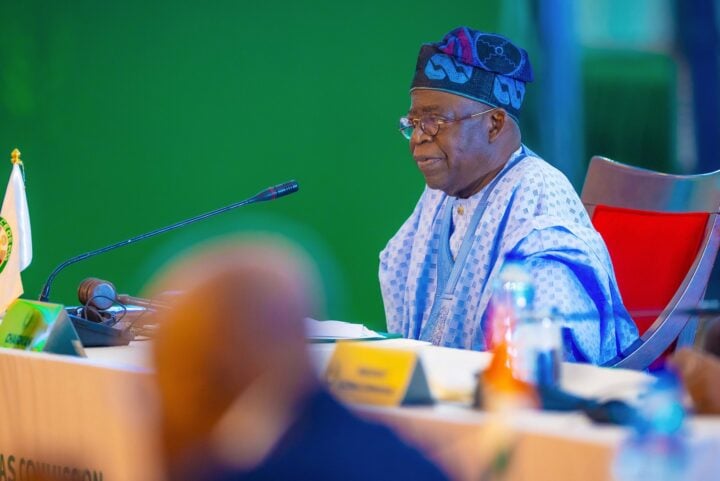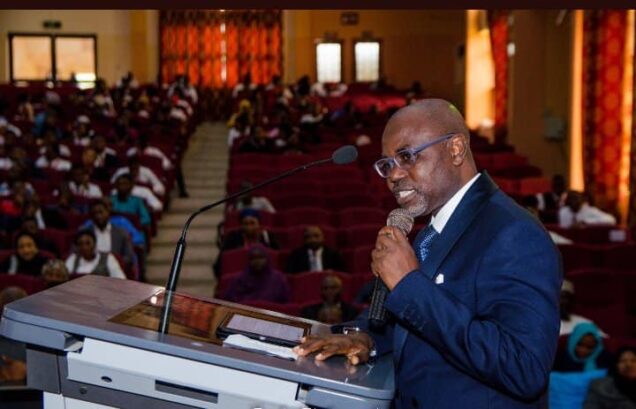BY EMMANUEL ADOGHE
At the tail-end of a street in the highbrow Asokoro district sits a somberly neat building. A signpost proclaims its official government use for dairy development. Its rusty gates seem perpetually secured with locks. And for the past 30 years, no one has witnessed any noticeable human activity at the building.
The budgetary allocation is yearly appropriated to cover its expenditures, ghost workers’ salaries, and imaginary projects. And someone, somewhere, benefits and has good laughs at Nigeria’s expense – no pun intended. No audits. No one cares.
There are an unknown number of such idle government assets scattered across the nation and overseas, wasting away or constituting a needless drain on the government purse. At the state and local governments, this unconscionable wastage of government assets is also common. Additionally, to satiate an established gluttonous peck of office consumerism, government-owned fleets of vehicles, properties, plants, and equipment are routinely converted to personal ownership by corrupt officials.
Advertisement
To be sure, the waste of assets and inefficiency in government is as old as the Nigerian Republic. “Dem no dey carry government work for head” is a banter common in public circles to reinforce a cognitive dissonance that profligacy and indolence are permissible in government. Tellingly, the hushed response to the outcry against the huge cost of governance from swanky automobiles to outlandish conference expenditures reinforces that position.
This insouciance to asset loss in government is self-defeatist, and an amusing irony — since in the end, all Nigerians including perpetrators, collectively suffer from the theft and losses of their common patrimony. Very few would find it befuddling why most Nigerians fail to adopt and care for government assets as their communal assets. For starters, blame the huge trust deficit between the governed and the government.
Disillusioned by past military regimes and disenfranchised by poor governance from recent civil authorities, Nigerians have subconsciously distanced themselves from all that is government, effectively disavowing their common patrimony. It is this communal disinheritance that invites the vultures — both elective and appointive in government, civil servants, and contractors, to feast with unbridled gluttony and waste or pillage of government assets. No audits. No one cares.
Advertisement
For one thing, prudent management of government assets and effective oversight of procurement processes is possible. For example, in the US, the General Services Administration is responsible for more than just management oversight of all government buildings and infrastructure but also equipment and operational efficiency.
In their own words culled from their website: “We provide workplaces by constructing, managing, and preserving government buildings and by leasing and managing commercial real estate. Our acquisition solutions offer private sector professional services, equipment, supplies, and IT to government organizations and the military. We also promote management best practices and efficient government operations through the development of governmentwide policies”.
Why is this even important? In an era where Nigeria, and the Tinubu administration, are facing a bulging budget deficit of over N9 trillion (2024) which is snagging 50% of total Federal Government of Nigeria (FGN) revenues, the need to cut wastage and revenue leakage is not only wise but an existential necessity. Putting government assets to the highest and best use can easily generate cost savings estimated at 60% of FGN revenues.
Of a truth, recent FGN efforts such as the nod to Oracle to digitise and streamline government processes and the National Assets Register positioned to generate cash are commendable but far from sufficient. And that insufficiency is because of the neglected human element — digital transformations always require significant cultural and behavioural changes.
Advertisement
The persistent push-back of the Integrated Payroll and Personnel Information System (IPPIS) and Treasury Single Account (TSA) implementation exemplify resistance from government officials to organisational changes. Organisational restructurings can also falter from poor change management, even with superb technology.
The Tinubu administration must make it impossible for officials to “turn off” or sabotage technology platforms by tying uptime and optimal performance to mutual benefits and probity of stakeholders. Importantly, enterprise platforms require collaboration — the owner, (government) service providers, and end-users must see their mutual benefits in unison protection against hackers or saboteurs.
The issues threatening to make Nigeria the wastage capital of the world are quite clear too, and lamented about by those with front-row insights at the Ministry of Finance. “Our budgets are filled year-in-year-out with projects that we see over and over again and also projects that are not necessary,” said former minister of finance, budget and national planning, Zainab Ahmed.
It is needless to set up a new ministry, department, or agency for efficient asset management of FGN assets. An amendment to the current Asset Management Corporation of Nigeria (AMCON) Act to add additional functions will allow it to manage government buildings, infrastructure, and equipment and ensure operational efficiency. Such an amendment is not new.
Advertisement
Efficient asset management of government assets will open doors to easily implement differentiated reorientation strategies to raise citizenry awareness of their shared ownership in government assets and social contracts in governance. States and local governments can domesticate similar programmes to reduce government asset waste.
Additional ways to continuously signal communal ownership in government assets include getting critical community stakeholders’ buy-in, joint ownership public-private partnerships (PPPs) with host communities, and effective audience engagement — “your tax Naira at work” for public projects.
Advertisement
Without plugging the gushing waste of assets and revenue leakage in government, the summation of Tinubu administration’s trawling the globe for foreign investments, scaling up oil and tax revenues to impregnate government purse, is akin to filling a wicker basket with water.
Advertisement
Views expressed by contributors are strictly personal and not of TheCable.
Add a comment






